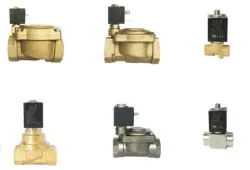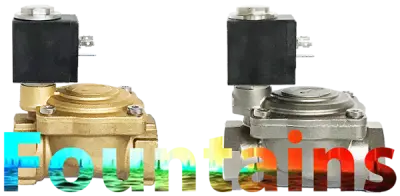Choose Your Solenoid Valve
Selecting the right solenoid valve depends on your specific application requirements, including factors such as the type of fluid, pressure, flow rate, and operational conditions. Here's a general guide to help you choose the appropriate solenoid valve:
- Determine the Valve Type:
- Consider whether you need a 2-way, 3-way, or 4-way valve based on the flow path and control requirements of your application.
- Valve Configuration:
- Decide whether you need a normally open (NO), normally closed (NC), or a universal valve that can be configured as both NO and NC.

- Decide whether you need a normally open (NO), normally closed (NC), or a universal valve that can be configured as both NO and NC.
- Fluid Compatibility:
- Ensure the valve materials are compatible with the fluid you are controlling. Different fluids may require specific materials to prevent corrosion or chemical reactions.
- Pressure and Temperature Ratings:
- Determine the maximum pressure and temperature conditions your valve will encounter and select a valve rated for those conditions.
- Flow Rate:
- Calculate the required flow rate (in gallons per minute, liters per second, etc.) to ensure the valve can handle the desired flow without excessive pressure drop.
- Voltage and Electrical Compatibility:
- Choose a solenoid valve that matches the voltage and electrical specifications of your system. Common voltages include 12V DC, 24V DC, 24V AC, 120V AC, and 240V AC.
- Environmental Conditions:
- Consider the environmental conditions where the valve will operate, including humidity levels, potential exposure to dust or water, and ambient temperature ranges.
- Special Features:
- Determine if your application requires specific features such as manual overrides, position indicators, or explosion-proof certifications.
- Safety and Redundancy:
- In critical applications, consider valves with safety features like redundant coils or fail-safe mechanisms to ensure system reliability.
- Maintenance and Serviceability:
- Evaluate the ease of maintenance and the availability of replacement parts for the chosen valve.
- Certifications and Standards:
- Ensure that the valve complies with relevant industry standards and certifications, particularly in regulated industries like food processing or healthcare.




